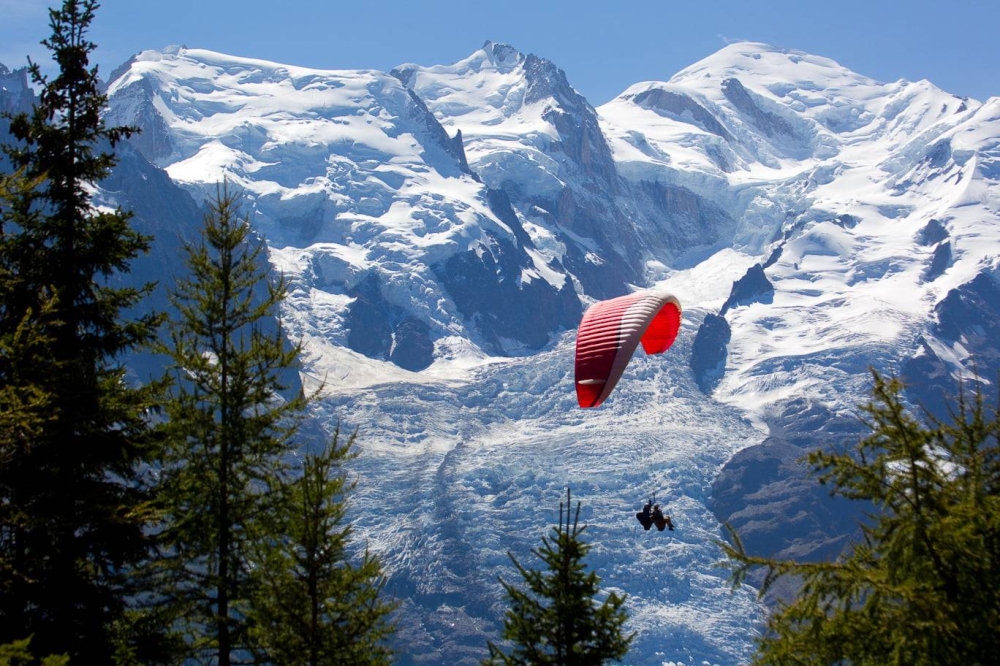Mountaineers preparing to tackle Mont Blanc have been urged by local authorities to delay scaling the summit of western Europe's highest mountain because of a severe heatwave affecting France.
The high temperatures, with more than 40 degrees Celsius registered in areas of southern France, are also being felt in the high peaks of the Alps, creating treacherous conditions for climbers.
Local authorities in the Haute-Savoie region, which includes the French side of Mont Blanc, said there were higher-than-usual risks of rockfalls on the regular routes up the mountain, as well as new crevices opening up on its glaciers.
In a statement posted online, they "appealed to everyone's sense of responsibility and judgement and urged you, where possible, to delay taking the Normal Route up Mont Blanc."
Swiss weather authorities said Monday that a new record had been set for the altitude of the so-called zero-degree line in the Alps -- the height at which the temperature dips below zero degrees Celsius.
It was clocked overnight from Sunday to Monday at 5,298 metres, "which constitutes a record since monitoring began in 1954", MeteoSwiss said.
France is experiencing a late summer "heat dome" -- a stable high-pressure weather system that has seen warm air trapped over the southern part of the country, producing record temperatures in some areas.
Last July, during a more severe heatwave, all seven routes leading to the Mont Blanc summit at 4,807 metres (15,774 feet) had deteriorated to such an extent that only the most experienced climbers were able to make the ascent.
French authorities moved to close down two popular mountain shelters used by Mont Blanc climbers because of the risk of rockfalls.
Around 100-120 climbers reach the summit each day in normal summer conditions.
During the current hot spell, health authorities have placed roughly half of the 96 departments of mainland France on the second-highest heat warning level, with some areas around the Rhone valley set to be placed in the maximum red category later on Tuesday.
Scientists say human-induced climate change is amplifying extreme weather -- including the heatwaves, droughts and floods seen in several parts of the planet in recent weeks -- and say these events will become more frequent and more intense.

